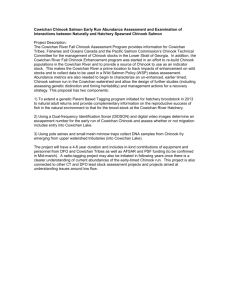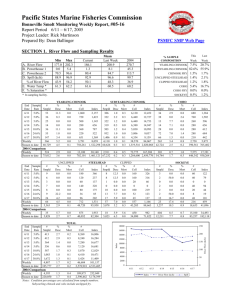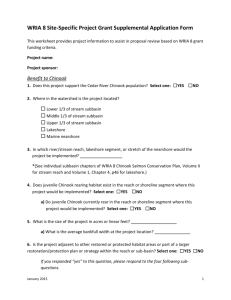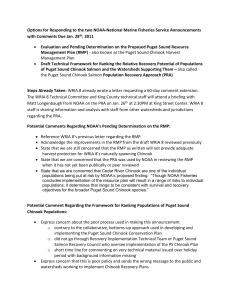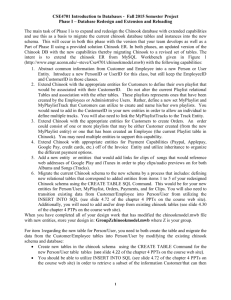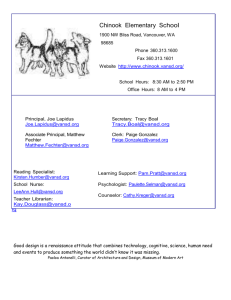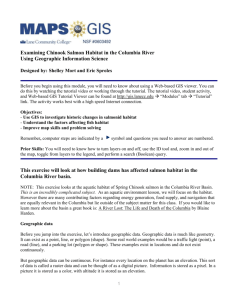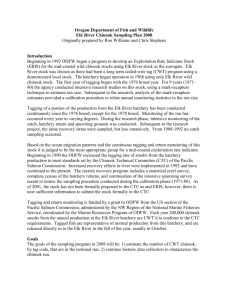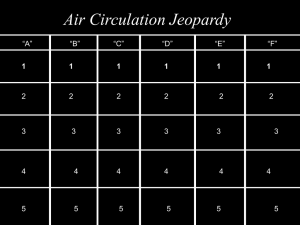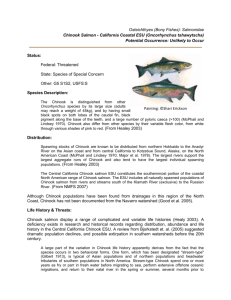Er Men
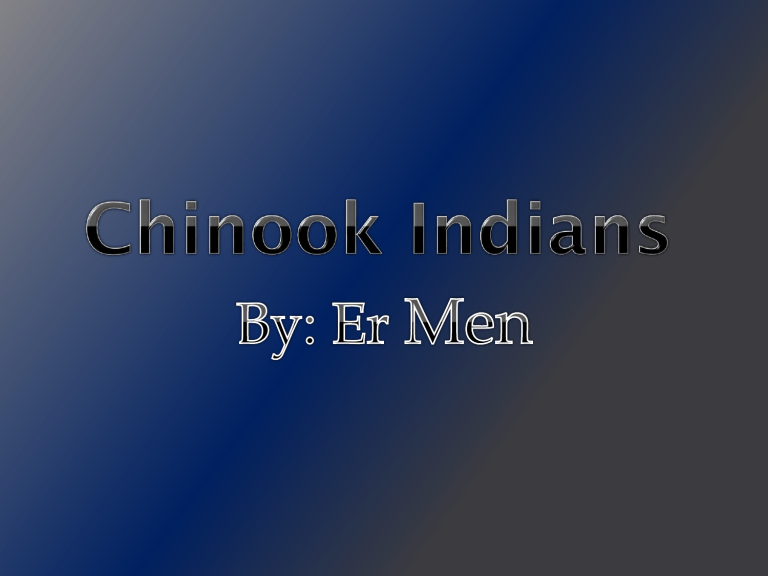
Several families from the same clan shared a pit house. Each clan was led by the oldest clan member. The Chinooks traced their clans through the
mother's family. Children belonged to their mother's clan .
The chionook indians land area was big.
There land was on the countries of
Washington, and Oregon.
People in the Pacific Northwest like the did not farm or keep animals. They hunted and gathered their food. Mostly Chinook people ate wild roots like Wapato (it's like a potato) and huckleberries (like small blueberries), and a lot of dried or roasted salmon that they caught in the Columbia river and other rivers that ran into the
Columbia
The Chinooks lived in coastal villages of rectangular cedar-plank houses with bark roofs. Usually these houses were large (up to 70 feet long) and each one housed an entire extended family. Here are some pictures of Indian houses like the ones Chinook
Indians used. Today, old-fashioned buildings like these are still made from cedar wood, but they are only used for ceremonial purposes. Chinook people live in modern houses and apartment buildings, just like you.
Chinook war bands typically included a significant proportion of bowmen. The
Chinook bow was typically a repurposed hunting tool, and there is no strong tradition of the manufacture of bows specifically for war. The arrows were usually tipped with flint arrowheads, bound to a one- to two-foot shaft by sinew cord and fletched with feathers or stiff leaves. Bows occupied a skirmishing role among the Chinook, with individual bowmen firing at targets of opportunity, with no real evidence of massed fire.
Story Gathering is held on the Second Saturday
of March, immediately following the
Council meeting, around noon
The Annual Meeting is held on the Third
Saturday of June, place to be announced.
Chinook artists are known for their fine beargrass baskets and woodcarving arts . Here is a website about Chinook and other
Northwest Indian basketry .
The Chinook Indians used canoes for transportation.
The Chinook Indian tribe made large dugout canoes by hollowing out cedar or fir logs. The Chinook tribe used these canoes to travel up and down the sea coast for trading, fishing and hunting, and warfare.
http://www.visitrainier.com/images/are aAttractions_chinookPass_lg.jpg
http://www.learner.org/interactives/h istorymap/images/chinook.gif
http://www.kingcounty.gov/~/media/environme nt/waterland/natural_lands/chinook_bend_picture
.ashx?w=225&h=169&as=1 http://www.historyforkids.org/learn/nor thamerica/before1500/food/chinook.htm
http://thrivingoceans.org/wpcontent/uploads/2009/05/salmon_chinoo k-1024x685.jpg
http://spiritwalkministry.com/yahoo_site
_admin2/assets/images/sacredbundle.264
112903_std.jpg
http://www.bigorrin.org/chinook_kids.htm
http://www.nativenewsnetwork.com
/image-files/flute-player.gif
mihttp://applegateboatworks.com/
Images/ulithm.jpg
http://friendsofmacdonald.com/wpcontent/gallery/main/house20warming201-
315102447.jpg
Chinook Indian Facts.com
